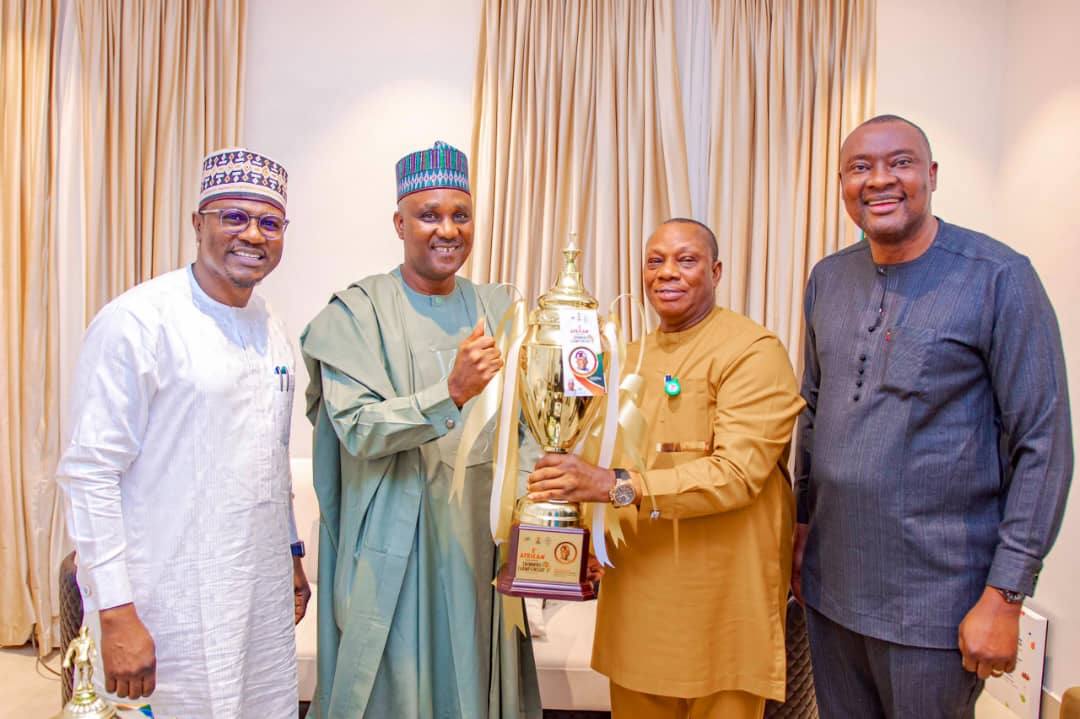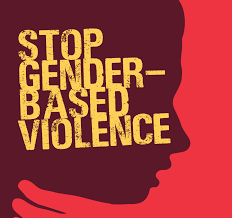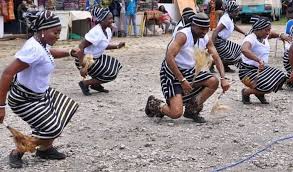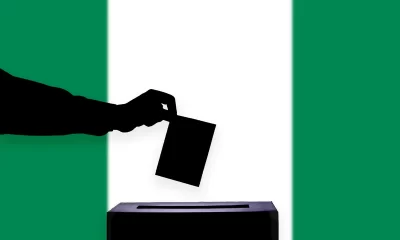NEWS
Reps Speaker Receives Africa Aquatics Trophy for Formal Presentation to President Tinubu

… As 32 Countries Get Set For 1st African Championship in Abuja
By Our Reporter
As swimmers and aquatic sport stakeholders from thirty two African countries get set to converge on Abuja, Nigeria’s Federal Capital Teritory for the 1st African Invitational Swimming Championship, tagged, ‘Peace and Progress’ in honour of ECOWAS chairman and President of the Federal Republic of Nigeria, Ahmed Bola Tinubu, GCFR, Speaker of House of Representatives, Rt.
Hon. Tajudeen Abbas has commended Africa Aquatics Zone 2 and Demakers Business Roundtable for the initiative.Rt. Hon. Abbas who made the commendation when the International Director of Planning and implementation of the championship, Dr.
Godwin Tammy N, presented trophy of the event to him on Thursday in Abuja, preparatory to the official unveiling/presentation to President Ahmed Bola Tinubu on a later date in Abuja said he was elated by the choice of President Ahmed Bola Tinubu for such honour in appreciation of his charismatic leadership and growing regional influence of as ECOWAS chairman in turbulent times in the sub-region.The Speaker, under whose lead role the 1st African Invitational Swimming Championship is being organised by Africa Aquatics, Zone 2, Dakar, Senegal and Demakers Business Roundtable Abuja, noted that sports creates job opportunities for the youth population either directly or indirectly in other related sectors, such as infrastructure and services, transportation, accommodation, and security which in turn helps to reduce unemployment to improve household income levels, and boost economic growth.
Rt. Hon. Abbas maintained that the forthcoming swimming championship would be a good platform to discover credible talents that could be groomed and monitored to represent Nigeria at international championships in future as the event would inspire all levels and age grades to participate competitively in a secure environment, where values such as teamwork, patriotism and courage would imbued in the citizens.
While handing over the tournament trophy to the Speaker of the Federal House of Representatives, the International Director, Planning and Implementation of the 1st African Invitational Swimming Championship, tagged, ‘Peace and Progress’, Dr. Godwin Tammy N, explained that the event was being put together by Africa Aquatics Zone 2, Dakar Senegal and Demakers Business Roundtable, Abuja in appreciation of the charismatic leadership and growing regional influence of the ECOWAS chairman, President Ahmed Bola Tinubu in turbulent times in the sub-region.
Dr. Tammy expressed his deep appreciation to the Rt. Hon. Speaker for his sacrifice of love and commitment towards President Ahmed Bola Tinubu and the Federal Republic of Nigeria, describing the 1st. African International Invitational Swimming Championship as a moment of aquatic sport festivity.
He informed that the organisers would be grateful to unveil the trophy during the formal presentation of the trophy to the ECOWAS chairman and President, Federal Republic of Nigeria, Ahmed Bola Tinubu to signal the commencement of the event on a later date.
Dr. Tammy also hinted that championship, which is being organised collaboration with relevant institutions within and beyond the African continent, would be hosted by the Honourable Minister of the Federal Capital Teritory (FTC), Barr. Ezenwo Nyesom Wike.
“This is the first of its kind ever organised for an African leader. It promises to be an exciting event and a moment of glory, laced with blissful ectacsy, finese and alluring quality of talents dotted across Africa with over five thousand male and female swimmers from 32 countries converging on the beautiful city of Abuja to fight for the continental crown. It will attract a collection of regional stakeholders in sports development who are committed to youth development and empowerment,” Dr. Tammy hinted.
He expressed the hope that the international invitational swimming championship would help to unveil young talented swimmers, who will represent Nigeria in future international championships.
Dignitaries present during handing over of the trophy to the Rt. Hon. Speaker, House of Representatives include Prof. Dan- Azumi, Jake, (Chief of Staff to the Speaker), Hon. Dr. Aliyu Mustapha (Vice chairman, Upstream Petroleum), Dr. Chamberlain (Deputy Chief of Staff to the Speaker and Hon. Jingi Rufai, among many Honourable Members of the House of Representatives.
NEWS
Tinubu Congratulates UNIJOS Graduands, Pledges Support for Education

From Jude Dangwam, Jos
President Bola Tinubu has congratulated graduands of the University of Jos (UNIJOS) at the institution’s 35th and 36th combined convocation ceremony and 50th anniversary celebration.
Tinubu, who is also the Visitor to UNIJOS represented by the Vice Chancellor ATBU Prof Ibrahim Garba Hassan commended the University for its growth and achievements, including its ranking as ninth in the 2026 Times Higher Education World University Rankings.
“I stand before you with great delight to be part of this remarkable and historic day in the lives of our graduands, their families, friends, well-wishers, and the University of Jos community.
”The President reiterated his government’s commitment to education that, “Education remains a central pillar of the Renewed Hope Agenda. This commitment is evident in our determination to transform Nigeria’s education sector through increased funding and comprehensive reforms.”
Tinubu announced that the Federal Government had allocated N3.5 trillion to the education sector in the 2025 Budget, representing 7.3% of the national budget.
He urged the graduands to deploy their knowledge and experiences for their personal development and the development of Nigeria.
“Having gone through the rigorous processes of learning and earned your degrees, it is hoped that you will deploy the knowledge and experiences acquired for your personal development and, more importantly, for the development of our beloved country, Nigeria.” He noted
The Vice Chancellor of the University of Jos Professor Tanko Ishaya disclosed that the University has recorded a total of 145 First Class Honors placing the institution on the global map of academic excellence.
“Today, we celebrate a total of 60,000 graduands: 9,236 diploma recipients, 37,741 first degree holders, and 13,023 postgraduate graduates.
“To the graduating class of 2025, I offer my warmest congratulations. You have persevered through global disruptions, national challenges, and personal trials, and today you emerge victorious.” Prof. Ishaya stated
The VC noted that the future of the University is very bright considering its recent record of global ranking ahead of other universities across the country, as their focus remained unshakable.
“As we enter our next fifty years, our mandate remains clear; to build a globally relevant, locally rooted, and nationally impactful University.
“Our focus areas include strengthening research capacity, deepening innovation and entrepreneurship, expanding postgraduate training, enhancing student support services, and reinforcing governance, accountability, and financial sustainability.
“We are committed to producing graduates who are problem-solvers, ethical leaders, innovative thinkers, and patriotic contributors to national development,” he noted.
Ishaya maintained that over the past five decades, the University of Jos has evolved from a modest campus into a globally recognized center of learning, research, and innovation.
“Our achievements include world-class research in medicine, pharmacy, agriculture, arts and humanities, law, natural sciences, engineering, security studies, artificial intelligence, and ICT. Our alumni serve with distinction as governors, judges, diplomats, ministers, legislators, captains of industry, academics, and innovators across the world.”
The VC further disclosed that the University has also provided national leadership in peacebuilding, electoral reforms, community engagement, and inter-ethnic harmony.
“Our growth in infrastructure includes the new Sports Complex, Faculties of Pharmaceutical Sciences, Dental Sciences and Computing, the Central Research Laboratory, ICT Centre, Centre for Entrepreneurship and Innovation, Veterinary Teaching Hospital, and modernised student hostels.
“This year alone, we introduced eighteen new undergraduate programmes, including Data Science, Cyber Security, Software Engineering, Forensic Science, Radiography, Physiotherapy, Pharmacology, Entrepreneurship, and Social Work. Our Golden Jubilee is therefore not merely a celebration of time, but of impact, ideas, people, and national relevance,” he stated.
NEWS
Zamfara Reaffirms Commitment to Address Gender-based Violence

By Ifeanyichukwu Nwannah, Gusau
The Zamfara State Government has reaffirmed its commitment to addressing gender-based violence (GBV) and other forms of social violence across the state.
This was stated by the Commissioner, Ministry of Women Affairs and Social Development, Dr.
Aisha MZ Anka, during a coordination meeting with the Gender-Based Violence Technical Working Group (TWG), held today at the ministry’s conference hall.The Commissioner, who was ably represented by the Permanent Secretary of the ministry, Barrister Suwaiba Ibrahim Barau, noted that the present administration of Governor Dauda Lawal, in collaboration with UNICEF, has demonstrated strong dedication by establishing a Sexual Referral Centre aimed at examining and supporting survivors of GBV, as well as strengthening community resilience against harmful social norms.
Dr. Anka emphasized that gender-based violence remains a major hindrance to social wellbeing and human development, stressing that the government is fully committed to ensuring justice, protection, and support for all individuals in the state.
“We encourage all stakeholders to engage deeply, share insights openly, and work constructively as we assess our progress, identify areas for improvement, and strengthen our strategies for prevention, protection, and response,” she added.
The Director of Gender in the ministry, Hajiya Asama’u Madawaki, highlighted the rising insecurity bedeviling the country as a major factor fueling GBV.
She also noted that many parents and victims fail to report cases to the appropriate authorities.
She urged parents and guardians to promptly report all incidents of GBV and encouraged stakeholders to intensify community awareness campaigns.
Madawaki further appealed to the Zamfara State Government and international partners to increase funding for GBV prevention and response initiatives.
During the technical presentations, the first speaker, Malam Yusuf Sabo Tsafe, discussed strategies for strengthening GBV prevention and response mechanisms.
He called on partners to collaborate with the state government to harmonize GBV data and advocated for the establishment of Gender Desk Officers across the fourteen local government areas.
The second speaker, Dr. Amina Moh’d Hassan, delivered a presentation on understanding and addressing online harassment.
She emphasized the increasing role of digital technologies in facilitating impersonation, hate speech, and other forms of online gender-based violence.
Dr. Amina recommended strengthening legal frameworks and improving law enforcement capacity to address these emerging challenges.
After extensive deliberation, the GBV Technical Working Group agreed on some key actions intensifying awareness campaigns on digital safety and responsible online behavior, strengthening advocacy with security agencies, community leaders, and religious leaders, creatingreating a State SGBV Response Team and an SGBV Offenders Register and harmonizing referral pathways across the state
In his vote of thanks, the Director of Administration of the ministry, Malam Sani Shehu Ibrahim, commended all participants for their dedication toward addressing gender-based violence in Zamfara State.
NEWS
Nentawe, Alia, Suswam, Others Bag Chieftaincy Titles from Tiv Kingdom

From Attah Ede, Makurdi
The Tiv Kingdom has conferred honorific chieftaincy titles on prominent sons, daughters and friends of the Tiv Nation, including Benue State Governor, Rev. Fr. Hyacinth Alia; APC National Chairman, Engr. Prof. Nentawe Goshwe Yilwada; and former Benue State Governor, Senator Dr.
Gabriel Torwua Suswam, as the Tor Tiv, His Royal Majesty, Prof. James Ortese Iorzua Ayatse, moved to deepen unity and cohesion among Tiv people at home and in the diaspora.The conferment took place at the grand finale of the 2025 Tiv Day celebration held at the JS Tarka Stadium, Gboko, with the theme “The Rebirth of the Tiv Nation.” The event featured colourful cultural displays, reflections on Tiv history, renewed calls for peace and unity, and the formal launch of a Tiv–English Dictionary aimed at preserving and promoting the Tiv language.
Governor Alia described the Tiv Nation as one of the most identifiable ethnic nationalities in Nigeria, stressing that the sacrifices of past leaders who fought for the identity, dignity and freedom of the Tiv people must never be forgotten. He urged Tiv sons and daughters to remain proud of their heritage, peaceful and united, noting that unity was key to development across Tiv land.
The governor, who expressed gratitude for the title of Asôrtar-u-Tiv, described Tiv chieftaincy titles as honours that come with responsibility and service. He said the recognition would further inspire him to intensify development efforts across Benue State.
Also speaking, the Secretary to the Government of the Federation, Senator George Akume, said Tiv Day remained a celebration of identity, unity and cultural pride. He recalled that the annual event, instituted in 1977, was meant to foster unity among Tiv people worldwide, and commended the Tiv Nation for its contributions to national development and its role during the Nigerian Civil War. Akume assured the Tiv people of President Bola Tinubu’s commitment to equity and inclusiveness, acknowledging that ongoing reforms were necessary for long-term national stability.
In his address, the Tor Tiv thanked President Tinubu for timely interventions following recent security challenges in Benue State and commended Governor Alia for supporting the revival of Tiv Day after years of suspension. He explained that the Tiv Area Traditional Council approved the conferment of chieftaincy titles in recognition of outstanding service to the Tiv Nation and Nigeria.
Those honoured included Prof. Nentawe Goshwe Yilwada (Zegebar-u-Tiv); Senator Dr. Gabriel Suswam (Vande-u-Tiv); and several others drawn from academia, politics, security and the private sector. The monarch disclosed that eight additional honourees would receive their titles at a later date.
The Tor Tiv also outlined ongoing cultural reforms focused on eliminating harmful practices, empowering women, promoting Tiv language development and supporting youth education through initiatives such as the Tiv Scholarship Trust Fund and related foundations. He urged Tiv people to heal political and social divisions and work collectively for the future of the nation.
Former Governor Suswam, in his remarks, appealed to Tiv people to rise above partisan differences and support constituted authorities in the interest of development, while the President General of Mzough-u-Tiv Worldwide, CP Iorbee Ihagh (Rtd.), described the celebration as a call to reflection and action, stressing that peace and unity were indispensable to progress. He appealed to the Federal Government to intensify efforts to end insecurity and facilitate the return of displaced Tiv people to their ancestral homes.
Responding on behalf of the honourees, Engr. Prof. Nentawe Yilwada thanked the Tiv Nation for the recognition and called for reconciliation and unity within the political space, noting that internal cohesion was critical to overcoming external challenges.
Meanwhile, in a related move to strengthen Tiv unity nationwide, the Tor Tiv has appointed 19 Uter (Vassal Kings) across various states of the federation to serve as emissaries of the Tiv throne and custodians of Tiv culture outside Benue State. The appointments, which cut across Adamawa, Zamfara, Borno, Katsina, Sokoto, Ebonyi, Imo, the Federal Capital Territory, Ogun, Bayelsa, Abia, Nasarawa, Enugu, Kaduna, Kano, Kogi, Kebbi, Rivers and Lagos states, were formalised at a ceremony at the Tor Tiv Palace in Gboko.
Presenting certificates and letters of introduction to the appointees, the monarch charged them to be worthy ambassadors of the Tiv throne, warning against greed and conduct capable of eroding integrity. He said the creation of the Uter structure nationwide was aimed at uniting Tiv people under one umbrella, ensuring recognition, inclusiveness and access to opportunities in their states of residence.
The Ter Tiv of Kogi State, Chief Moses Chinor Vor, who spoke on behalf of the appointees, expressed gratitude to the Tor Tiv and pledged their commitment to promoting unity, peace and the ideals of the Tiv Area Traditional Council across the country.
















